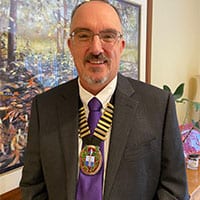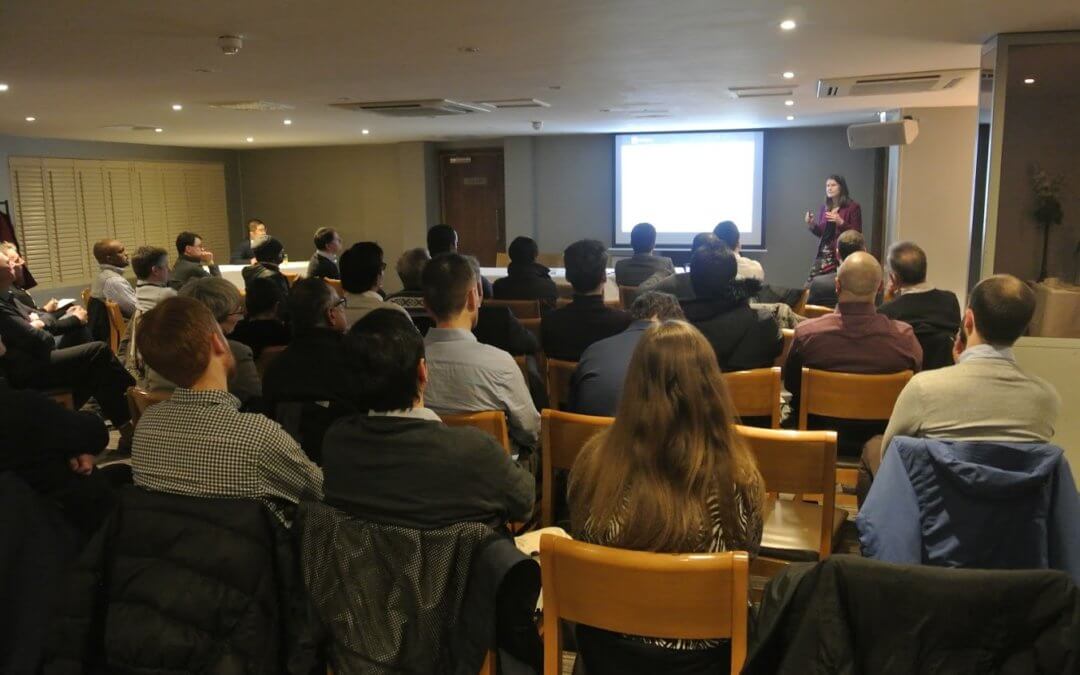The cart is empty!

Dr Douglas Mills, ICorr Honorary Fellow, Is Named EFC Honorary Fellow
A Story of Experience, Wisdom, and Energy for All Things Corrosion
Dr Douglas Mills, ICorr Honorary Fellow, has been named an EFC Honorary Fellow, in recognition of his outstanding achievement in the field of corrosion and engineering science, as well as his commitment, impact, and delivery of significant benefit in his work and roles within the EFC.
It all began in Cambridge
Dr Mills’ passion for all things corrosion was first cemented at the University of Cambridge, where he graduated as a BA(Hons) in Metallurgy & Chemistry in 1970, before gaining his MA in 1973, and PhD in Metallurgy and Materials Science in 1974.
A profound influence on the direction of his career was given by Dr ‘Jack’ E. O. Mayne, who supervised Douglas’s PhD in the field of corrosion and protection. In addition to being a Don at Cambridge, Dr Mayne also ran a paint company in London, a combination that seemed rather attractive to Douglas.
A man of many talents
During his career, Douglas has demonstrated that he has many talents to offer to industry and academia.
Perhaps taking his lead from Dr Mayne, Douglas has managed to combine sharing his knowledge and experience with students while engaging industry in collaborative research projects. These have included joint research projects with companies such as Pronto Paints, Bearwood Engineering, Mott MacDonald and DCVG.
He has been an Editorial Board Member of the Corrosion Engineering Science and Technology Journal, and is currently the UK Principal Expert on the ISO Committee responsible for developing standards for assessment of anti-corrosive paints.
Since the late 1970s, Douglas has sought to improve understanding of corrosion not only through his research work, but also by lecturing and tutoring at educational establishments that include Trent Polytechnic, the University of Nottingham, and North Dakota State University.
For more than 20 years, Douglas was also PhD/MPhil/EngD/MSc examiner for the University of Swansea, University of Witwatersrand, University of Manchester, and Sheffield Hallam University. And between 2008 and 2020, he participated in the Erasmus Exchange scheme with the Technical University of Gdansk. Douglas hasn’t restricted his love of teaching to engineering and science, either.
Douglas hasn’t restricted his love of teaching to engineering and science, either. At one time, he taught classical guitar in schools!
Extra-curricular activities in corrosion
Douglas’s extra-curricular activities in corrosion are also notable, including:
- He was the Technical Secretary of the Institute of Corrosion between 1998 and 2017
- Co-Organiser of the EUROCORR Conference in Edinburgh in 2008
- Co-Organiser of organised ACPOC (Advances in Corrosion Protection by Organic Coatings) Conference in Cambridge in 2015, for which he also co-edited conference proceedings
- Editor of the EFC Newsletter between 2016 and 2022.
A long history of involvement with EFC
Of course, while Dr Mills has had a full and active career in the field of corrosion, the awarding of Honorary Fellowship of the EFC is to recognize the tremendous and specific contribution he has made to the EFC.
As well as recognizing his incredible accomplishment in the field of interpretation of electrochemical response of coatings on metals using techniques such as Electrochemical Impedance Spectroscopy (EIS) and Electrochemical Noise (EN), the EFC jury noted his long-term, active involvement in a wide range of EFC Working Parties and his valuable contribution to the EFC.
Slowing down, but not stopping
Dr. Douglas Mills is a respected and accomplished figure in the field of corrosion and engineering science, with a wealth of experience, talents, and a passion for teaching and sharing his knowledge.
This latest recognition as an EFC Honorary Fellow is a testament to his outstanding achievements and contributions to the field of corrosion and his long-term, active involvement in various EFC Working Parties.
He now plans to remain in his current academic role for at least another year, helping to uncover “the mysteries about corrosion that need to be solved.”
On behalf of all here at the Institute of Corrosion, we congratulate you on the award of Honorary Fellowship of EFC, Dr Douglas Mills. And we look forward to many more years of your experience, wisdom, and energy for all things corrosion.





